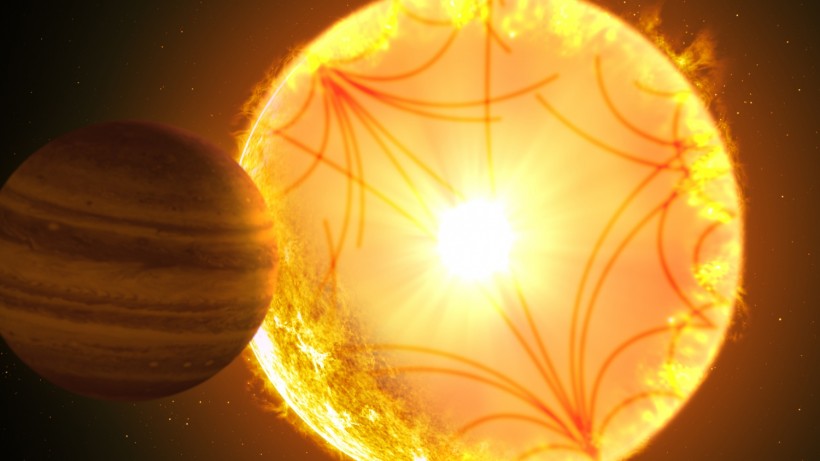NASA Kepler's Space Telescope ventured into worlds unknown to look for exoplanets that are in other systems and galaxies, and one of its earliest discoveries is the Kepler-1658b.
Now, news regarding this exoplanet is about its upcoming demise, where it would crash to its host star in a recent spotting, with the gas giant inching closer to its death.
Kepler-1658b Exoplanet is Crashing to Host Star Soon

(Photo : Gabriel Perez Diaz/Instituto de Astrofísica de Canarias)
An artist's concept of the Kepler-1658 system. Sound waves propagating through the stellar interior were used to characterize the star and the planet. Kepler-1658b, orbiting with a period of just 3.8 days, was the first exoplanet candidate discovered by Kepler nearly 10 years ago.
In the research published via The Astrophysical Journal Letters, astronomers were able to detect an upcoming cosmic event that is soon to unfold and give the world more information about its distant neighbors.
This is with the Kepler-1658b exoplanet that is reportedly crashing soon to its host star, with the gas giant ceasing to exist in the near future. Currently, its orbit to its star is extremely close and can complete a revolution around it in 3.85 days.
It is closer to its host star than the Solar System's Mercury and the Sun.
Kepler-1658b's orbital period is decreasing 131 milliseconds per year, and its tidal or gravitational interactions caused this to happen.
Read Also: New Inflated Hot Jupiter Exoplanet Detected, Another Giant Planet to Die Soon?
NASA Took a Decade in Confirming Kepler-1658b
NASA's Kepler space telescope discovered the Kepler-1658b last 2009, but it was not immediately proven or accepted as an exoplanet until 2019, ten years later.
Its short-lived induction as an exoplanet, also being the Kepler's first, is unfortunate, as the future is not clear for Kepler-1658b. Soon, all astronomers will see in its location will be its remnants, along with the host star, Kepler-1658.
NASA Kepler's Mission and Discoveries
The NASA Kepler is already decommissioned by NASA, and the decades-old space telescope has brought a lot of discoveries on its daring missions to look for exoplanets all around the universe.
In its retirement, the space telescope managed to spot a gas giant exoplanet dubbed Jupiter's Twin, sharing a significant resemblance to the Solar System's largest entity.
Apart from exoplanets, Kepler also managed to find two exomoons on its previous quests, and one of the most recent is this Alien Moon three times bigger than the home planet. This so-called exomoon candidate is 5.500 light years away from the Earth, and like the local Moon, this exomoon also orbits its host planet, as part of its search for extraterrestrial life.
With Kepler opening the doors for NASA in discovering exoplanets and other systems in distant galaxies, it sure recorded iconic ones like the Kepler-1658b which saw a massive development now. However, this recent discovery is also close to its end, with astronomers already predicting its upcoming cosmic end soon, especially in its current state.
Related Article: New Super-Jupiter Exoplanet Puzzles Astronomers; Planetary Formation Theories Can't Explain It










